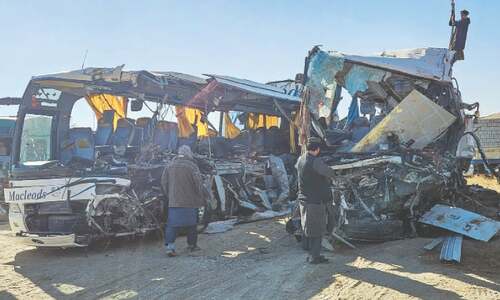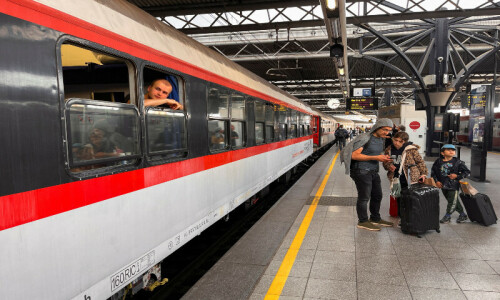Challenges to personal safety are plenty in winter as the need for heat often results in accidental fires while because of low visibility in foggy conditions, low temperatures and slippery surfaces from flurries may lead to road accidents. Knowing what to do and what not to do in these situations can help avert most accidents.
Winter is also the preferred season for weddings and parties which involves installation of decorative lighting. When doing so, keep in mind not to overload power outlets or connections. Take care to properly seal electrical joints, so that moisture from dew can’t get in. Decorative lights should be switched off at nights or when leaving the house unattended, as well as during heavy fog or rain.
Ensure that you know how to locate and switch off the entire power supply in one flip of the button in case of any electrical surge or even if there’s a short-circuit in one part of the house. To face an adverse situation have a fire extinguisher handy and ensure that someone who can operate it is always around.
A few simple rules, patience and caution can minimise the chances of having an accident in wintery conditions
Criminals are always on the prowl for their next victim and there’s no better target than one which is widely advertised. Yes, the flip side to celebrations is that these are visible to all and means criminals will attempt to rob you.
Valuables that can’t be easily replaced or require special effort to obtain (CNIC, passport, property and vehicle documents, etc) should be kept securely on site with only one or two people having knowledge of where they are kept. Alternatively, bank lockers or even a relative or friend’s place could be used to keep these items.
Volume of cash transactions tend to increase during this period. Therefore, secure the cash by splitting it up in several hidden spaces (use of a safe is strongly recommended). When you are accessing funds ensure that there’s no one around.
Be alert to unusual behaviour among all members of the household, as generally minor losses and thefts involve guests, relatives and servants. You may also confront random people who attempt to infiltrate events posing as distant relatives or friends, while some may be harmless pranks others could be professionals intending to rob.
While care should be taken to protect your house, the event venue also needs a similar approach of caution. There are chances of attendees being held up while parking the car, vehicles being broken into as well as hold-ups of people leaving the venues at nearby traffic signals.
When leaving the venue you could consider removing expensive jewellery and putting it in a separate pouch that can be stashed safely inside the vehicle. Other valuables, such as wrist watches, can be taken off and replaced with a lower value one (keep a second one to wear on the way to / from the venue). It is also advisable to limit the amount of credit / debit cards you carry on you.
Remember that criminals are shrewd, they know you will try to thwart their efforts. Therefore don’t challenge them during or even after they’ve escaped. Report the incident to the nearest police post.
Driving in winter is often a challenge as road conditions can change at a moment’s notice.Therefore being prepared for the worst is the surest way of coming out of it with minimal impact.
Before hitting the road, make sure that the car is well-maintained. In areas where there is heavy snow or flurries, make sure that anti-freeze liquids are used, and that the heating systems are working properly.
Use tyres with appropriate threads or thin chain cages.
Ensure that the battery is charged and if it is weak then replace it with a new one. Remember if you can’t see, or can’t stay warm, the car must not be taken out. You could also end up harming yourself during a push-start effort.
Keep a warm quilt or extra jackets in the car and even some dry snacks and water. This is critical for people who must travel through snowfall and in case the roads are impassable.
In case your vehicle suffers a breakdown stay inside and try not to open the doors and windows to retain the heat to a maximum. If the hazard lights are working, use them so you can be easily spotted.
Fog is quite common in several parts of the country in winter, severely impacting mobility. If you have to step out during fog then ensure the following:
Drive slow. If others want to drive past, allow them to. It’s not only about your reaction time it’s what others do or fail to do that can impact you. Therefore, if you can control the pace of those behind you without undue discomfort, do so or fall behind so you don’t impede them.
If you don’t have fog lamps, get them as using these is important. High beams are not an alternate to fog lamps because people coming from the opposite direction cannot see properly and a major incident could result. They also make it difficult for you to see ahead as light beams reflect moisture droplets in foggy atmosphere.
If the vehicle is equipped with demisters, turn it on to hot.
Drive at a steady pace. Don’t speed up suddenly or slow down too quickly either. While fog may appear to lift, you could just as quickly find yourself back in fog. If visibility decreases, don’t stop in the middle of the road. Pull off the road to a safe parking area, wait for the fog to lift and don’t forget to have your hazard lights on.
The writer is a safety and security advisor
He tweets at @Norbalm and can be contacted on ask@norbalm.com
His blog is www.norbalm com
Published in Dawn, Sunday Magazine, January 8th, 2017















































Dear visitor, the comments section is undergoing an overhaul and will return soon.